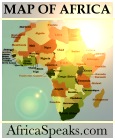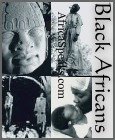More people will admit land reform is justified
Posted: Tuesday, November 19, 2002Herald Reporter
IF Britain had accepted much earlier its responsibility in creating Zimbabwe’s land problem, the situation would not have deteriorated to what it is now, says the Minister of State for Information and Publicity, Professor Jonathan Moyo.
British foreign minister, Mr Jack Straw last week publicly acknowledged the role of his country’s imperialist expansionist policies in the problems besetting Zimbabwe, after pummelling the country for embarking on land reforms to correct historical injustices for over two years.
Prof Moyo said yesterday more people were going to admit that the country was justified in acquiring land for the landless majority in its quest to correct historical imbalances.
"Chickens are coming home to roost," he said during a lecture at the Zimbabwe Staff College. "Jack Straw now agrees. If he had agreed much earlier we should not have had this problem."
Mr Straw is reported to have ruffled feathers in British politics by blaming the current crises in Iraq and Zimbabwe on the legacy of British imperialism.
"A lot of problems that we are having to deal with now — I have to deal with now — are a consequence of our colonial past," he was quoted as saying in an interview published in the New Statesman magazine last Friday.
The British government has reneged on its colonial obligation to fund Zimbabwe’s land reform despite having agreed to do so at the 1979 Lancaster House talks.
"We are going to have more people admitting that we are right," Prof Moyo said. "Land is now in the hands of Zimbabweans. We are not going to give back an inch of that land."
"We don’t want to have this problem in future. In Zimbabwe there can be no better way of turning things around than to till the land," he said during a lecture attended by 100 army Junior Staff Course and Joint Command Staff Course students.
In his lecture, Prof Moyo outlined the role of his ministry, recent media development trends and challenges facing the information sector in the wake of fierce global capitalism and an onslaught on Zimbabwe’s sovereignty.
"It is important to know what the Government policy is. It is our duty to articulate Government policy, to explain Government policy and to appreciate what it is doing," he said.
He said the electorate expects the Government to implement what Zanu-PF as a party promised in its election manifesto.
"Government policy and its decisions are rooted in the vision and the thinking of our party," he said.
Prof Moyo narrated how the Zimbabwe Mass Media Trust was formed to rid the country’s national media from foreign domination.
With Nigerian funding, he said, the Trust was able to buy out shares of the South African Argus Press, which used to own titles under the Zimpapers Group.
"There was no way we could allow our national media to be controlled by apartheid media institution," he said.
He said he was surprised that critics called titles under Zimpapers "Government-owned or Government-controlled."
"They make their own editorial decisions," he said. If they are going to criticise the Government, they should criticise what they know. We see them not as Government media but as national media."
Prof Moyo criticised privately owned media for being used by Western countries to ridicule the Government and everything that was Zimbabwean.
"They are opposed to the history of the nation, they are opposed to the values of the nation … they are anti-nation.
"It is our desire to work with everyone. We have a media that is principally anti-nation, anti-nationalist, anti-pan-Africanist and against the land reform programme," he said.
The media, he said, had become an area of major contest, with some powerful countries using the privately owned media to demonise and topple the democratically elected Government.
He said the Daily News was being used by Western countries to attack the Government, the country’s values and traditions and the standing of the country’s national heroes who suffered to liberate Zimbabwe.
"This has put us in conflict with certain interests. It survives on sponsored criticism. It is a paper, which became the voice of farmers. It distorted the whole land issue saying the land issue was disorderly and that it was not done according to the rule of law.
"The rule of law is a product of the people in that country … law made by Zimbabweans and for Zimbabweans. This has become an issue in national politics."
He said the Daily News was obsessed with criticising the Government but turned a blind eye to any wrongdoing or shortcomings of the British government and the white world.
"They never ever, ever, find any wrong with the British, never find any wrong with the white world who criticise the Zimbabwean leadership," Prof Moyo said.
"We don’t think this is a reasonable thing."
The paper, he said, showed no regard of the colonial injustices perpetrated by white settlers when they dispossessed black Zimbabweans from their land a century ago, that lives were lost for the country to be independent and the fact that Britain has reneged on its colonial obligation to fund agrarian reforms.
"This is the point we have been making," he said. "Jack Straw now agrees."
Unlike in other countries, he said, his department defended national interest and articulated Government policy at the same time given the on-slaught on the country.
"We defend national interest, defend the Zimbabwean-ness through the promotion of Zimbabwean values, identity and our right to the nation. It’s none but ourselves."
Zimbabwe, he said, valued its participation and association with the Africa Union, Non-Aligned Movement, United Nations and Sadc.
"The Commonwealth is a club that has not rid itself from the colonial hangover," he said.
He said Zimbabwe had become a target of the British who were using BBC to set up a pirate radio station to churn out hate which sought to bring regime change.
SW Africa Radio, he said, was formed by the British and got funding from the US Transition Initiative, which got its money from USAID.
"We are the first country to be the victim. When you seek regime change, you are not seeking the change of the leader … you are seeking for a change of the process … regime change seeks to move us away from the foundation of the revolutionary struggle."
This, he said, was a threat to democracy as defined by the US and its allies.
He said the US government had openly accepted that it is working with some local journalists and media houses to effect "regime change".
"They use that phrase where they want to put a puppet. They will be interested in replacing values of the country. Regime change is a code word for a coup," he said.
Zimbabwe, he said, had proudly been able to hold elections when they were due and had one of the most vibrant democracies in the world.
"They are saying we will use information. It has become a most powerful tool since the collapse of the Cold War. You cannot defend your country without control of the information. AIPPA has brought some discipline in this country.
"It has comparable pieces of legislation, which are there in US."
Prof Moyo said there were some unpatriotic Zimbabweans who went to Britain and the US to urge these countries to invade or blockade the country.
"The Zimbabwe Democracy Act as drafted by Zimbabweans and perfected by the baas … the Uncle Toms ," he said.
He hailed the December 1987 Unity Accord signed by Zanu-PF and PF-Zapu describing it as firmly rooted in the revolutionary struggle.
"False pressures of a government of national unity has been created. We have a strong unity. There can be no unity between a nationalist and a reactionary, no unity between a nationalist and a puppet.
"They want to replace this through the back door. When it comes to national affairs, we deal with them ourselves," he said.
Global capitalism, he said, had led to the collapse of some economies of countries like Argentina and Brazil.
"Why should we all implement Tony Blair’s policy, George Bush’s policy? They should accept that within the international community there are differences.
"We don’t aspire to be like them...an American dream is not a Zimbabwean dream. The Zimbabwean dream is to own land unlike the American dream, which may be to own a hamburger," Prof Moyo said.Printer friendly version
Send page by E-Mail

Previous Page | Zimbabwe Watch | Historical Views | Home
NOTICE: All articles are the copyright property of the writers. In accordance with Title 17 U.S.C., section 107, some material on this site is provided without permission from the copyright owner, only for purposes of criticism, comment, scholarship and research under the "fair use" provisions of federal copyright laws. Visit: http://www.law.cornell.edu/uscode/17/107.shtml for more details. If you wish to use copyrighted material from this site for purposes of your own that go beyond 'fair use', you must obtain permission from the copyright owner.










